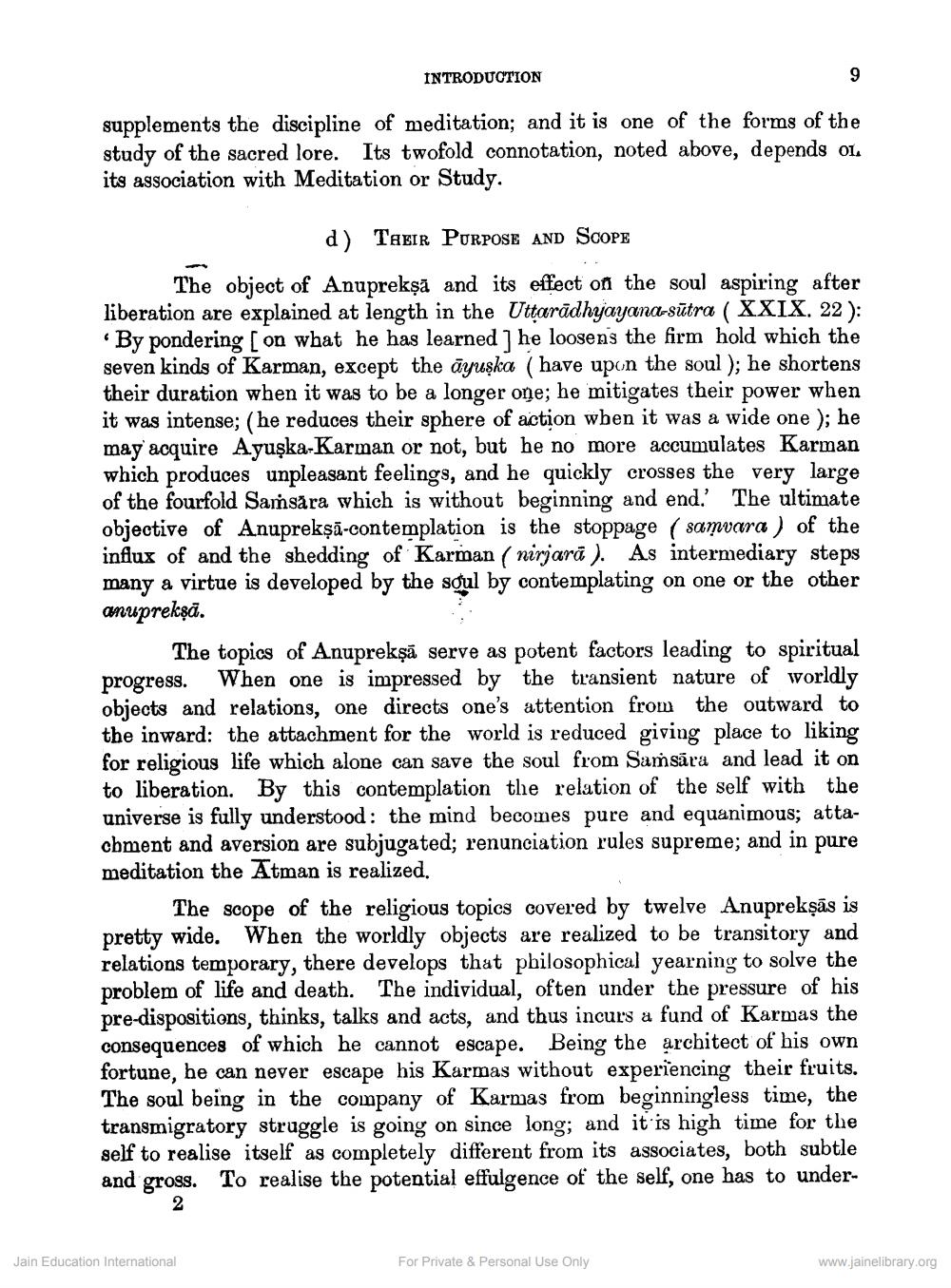________________
INTRODUCTION
supplements the discipline of meditation; and it is one of the forms of the study of the sacred lore. Its twofold connotation, noted above, depends on. its association with Meditation or Study.
d)
Their PURPOSE AND SCOPE
The object of Anupreksa and its effect on the soul aspiring after liberation are explained at length in the Uttarādhyayana-sūtra (X) . By pondering on what he has learned he loosens the firm hold which the seven kinds of Karman, except the āyuşka (have upon the soul ); he shortens their duration when it was to be a longer one; he mitigates their power when it was intense; (he reduces their sphere of action wben it was a wide one ); he may' acquire Ayuşka-Karman or not, but he no more accumulates Karman which produces unpleasant feelings, and he quickly crosses the very large of the fourfold Samsåra which is without beginning and end. The ultimate objective of Anuprekşā-contemplation is the stoppage ( samvara ) of the influx of and the shedding of Karman ( nirjarā ). As intermediary steps many a virtue is developed by the soul by contemplating on one or the other anuprekşā.
The topics of Anuprekşā serve as potent factors leading to spiritual progress. When one is impressed by the transient nature of worldly objects and relations, one directs one's attention from the outward to the inward: the attachment for the world is reduced giving place to liking for religious life which alone can save the soul from Samsāra and lead it on to liberation. By this contemplation the relation of the self with the universe is fully understood: the mind becomes pure and equanimous; attacbment and aversion are subjugated; renunciation rules supreme; and in pure meditation the Atman is realized.
The scope of the religious topics covered by twelve Anuprekşās is pretty wide. When the worldly objects are realized to be transitory and relations temporary, there develops that philosophical yearning to solve the problem of life and death. The individual, often under the pressure of his pre-dispositions, thinks, talks and acts, and thus incurs a fund of Karmas the consequences of which he cannot escape. Being the architect of his own fortune, he can never escape his Karmas without experiencing their fruits. The soul being in the company of Karmas from beginningless time, the transmigratory struggle is going on since long; and it is high time for the self to realise itself as completely different from its associates, both subtle and gross. To realise the potential effulgence of the self, one has to under
Jain Education International
For Private & Personal Use Only
www.jainelibrary.org




